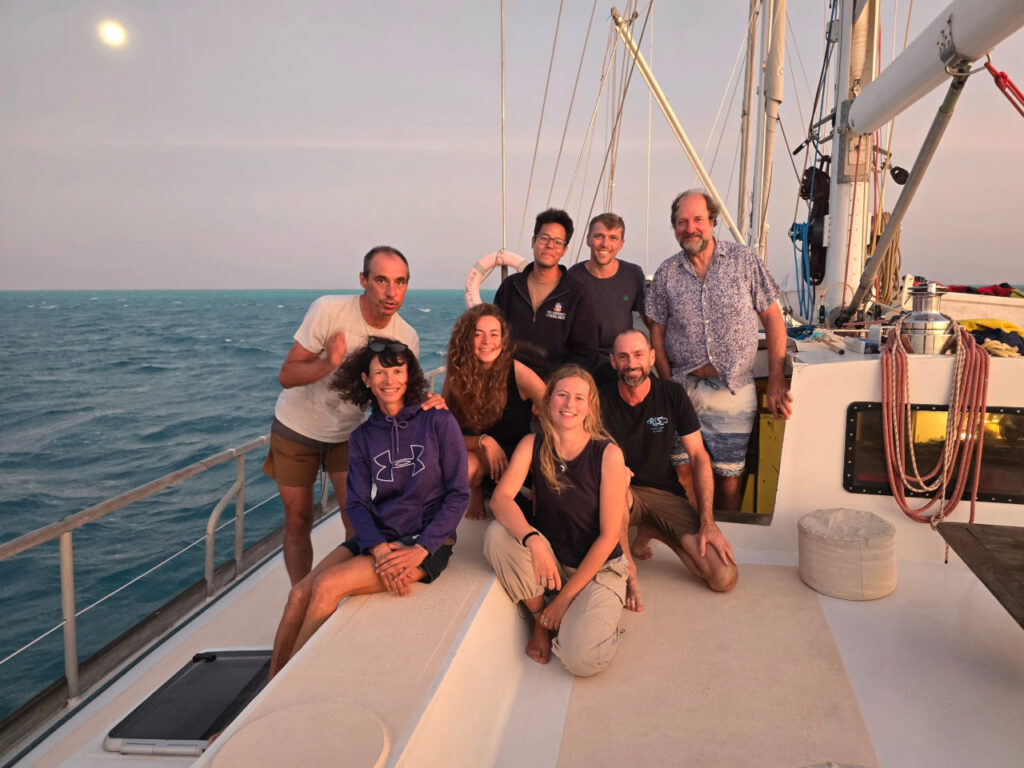Can the blue economy alleviate poverty and rural exodus in East Africa?
The University of Montpellier continues to shine on the international stage. David Mouillot, professor at UM and researcher at the MARBEC (Marine biodiversity exploitation and conservation) laboratory, has just been awarded an ERC Advanced grant. This €2.5 million grant over five years will enable him to conduct original, cross-disciplinary research to assess the potential of coastal marine resources in rural areas of East Africa that have been affected by land aridification for the past 30 years.

Alleviating poverty and rural exodus in East Africa through the blue economy
The project is based on an observation: over the past three decades, which have been particularly marked in East Africa by land desertification and natural disasters, coastal and rural villages have been better able to mitigate poverty and emigration by developing a sustainable blue economy capable of providing alternative resources and livelihoods.
The blue economy refers to economic activities related to the oceans and their coastlines. David Mouillot's study will combine satellite imagery, artificial intelligence algorithms, and statistical spatial matching methods with multidisciplinary field surveys. The project will focus on three types of blue economy (small-scale fishing, ecotourism, and aquaculture) and three countries (Madagascar, Tanzania, and Mozambique) where agricultural resources are threatened by climate change and where sustainable development issues are among the most critical globally.
The causal link between the establishment of a blue economy and long-term poverty and rural exodus dynamics remains uncharted territory in international research. The aim is to better understand the extent to which coastal communities in East Africa have been able to adapt to the consequences of climate change on their land by diversifying their activities towards the sea. The results could generate new knowledge and local solutions to guide policy and investment in Africa (EU interventions, United Nations organizations, donors, non-governmental organizations).
A decisive first year
David Mouillot will recruit a research engineer specializing in artificial intelligence techniques applied to satellite imagery, a geographic information system design engineer, a remote sensing and field survey engineer, and an intern from the Master's program in Environmental and Biodiversity Management (Aquadura track). His team will soon be reinforced by a postdoctoral researcher in quantitative socioeconomics and a systems computer scientist. The team will have two main tasks: to accurately model the level of poverty and population density in rural Africa from the 1990s to the present day, and to map blue economy activities on the coasts of Madagascar, Tanzania, and Mozambique. These tasks will be carried out mainly using satellite imagery, remote sensing, and artificial intelligence in collaboration with several partners from laboratories in Montpellier (MARBEC, LIRMM, ESPACE-DEV) as well as international partners. This first year will also be dedicated to organizing seminars on the project's themes with specialists in the field.
ERC funding
The European Research Council (ERC) funds exploratory research projects at the frontiers of knowledge in all fields of science and technology. It is an extremely competitive call for proposals, with scientific excellence as the sole criterion.
David Mouillot's application was mainly motivated, despite the very low success rate, by the prospect of long-term research (5 years) with substantial and flexible funding. The €2.5 million budget will enable him to acquire the necessary equipment, in this case state-of-the-art computer hardware, build a team of 6-7 complementary people dedicated to the project, and carry out socio-economic surveys as well as ecological field studies.
The portrait of David Mouillot
With a dual background in ecology and modeling, David Mouillot joined the University of Montpellier in 2001 to study the dynamics of marine systems in the context of global change using a multidisciplinary approach. He was a junior member of the Institut universitaire de France (IUF) from 2009 to 2014, then a senior member from 2019 to 2024. He also received a European Marie Curie fellowship to spend two years in Australia at James Cook University (2010-2011) to better quantify socio-ecological changes in coral systems. Since then, David Mouillot has been working on global coastal ecosystems to better understand the combined effects of climate change and socio-economic factors, including marine protected areas, on biodiversity and its contributions to human populations. His research was awarded a bronze medal by the CNRS (2011). More recently, David Mouillot has developed new environmental DNA tools to better study coastal biodiversity with the creation of a joint laboratory (ANR LabCom 2021-2025) between MARBEC and the company SpyGen. His new ERC Advanced funding focuses on the human-nature interface (2025-2029) to better predict the link between ecosystem health and poverty in rural coastal societies.